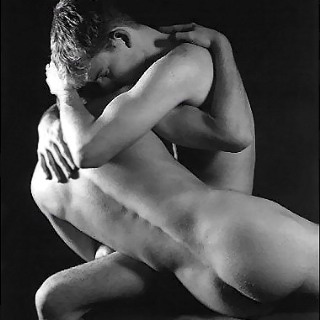 SAN FRANCISCO, CALIFORNIA - New Jersey's Supreme Court ruling on same-sex unions is likely to make California's top court less receptive to authorizing gay marriage, legal experts said Thursday.
SAN FRANCISCO, CALIFORNIA - New Jersey's Supreme Court ruling on same-sex unions is likely to make California's top court less receptive to authorizing gay marriage, legal experts said Thursday.On a 4-3 vote, the New Jersey high court refused Wednesday to declare that same-sex couples should be permitted to wed. The jurists instead said the Legislature must provide same-sex couples with the same rights as spouses, possibly under a civil union law.
Santa Clara University professor Gerald Uelmen, an expert on California's Supreme Court, said New Jersey's ruling would incline the California court to be more "restrained" on same-sex marriage.
"I don't think this will push them in the direction" of approving same-sex marriage, Uelmen said.
New Jersey's Supreme Court is one of the most liberal in the country, while California's top court is considered cautious and moderately conservative. Although a split ruling like New Jersey's has less weight than a unanimous decision, "the impact it has seems more likely to be negative than favorable toward a right of gay marriage," said Stephen Barnett, professor emeritus of law at UC Berkeley.
Unlike New Jersey's, California's top court will not be able to issue a compromise ruling, law professors said.
In New Jersey, the jurists ruled that same-sex couples must be given the rights and privileges of marriage, but left it to the Legislature to say whether the resulting unions should be labeled "marriages." Same-sex couples in California already have most of those rights under a strong domestic-partners law.
"New Jersey was able to split the baby in half," Barnett said. "In California, that has already been done."
UCLA law professor Brad Sears agreed.
"Unlike in New Jersey, the California Supreme Court is not going to be able to avoid the marriage question," Sears said.
The California Legislature passed a bill in favor of same-sex marriage, but Gov. Arnold Schwarzenegger vetoed it. A state appeals court earlier this month rejected same-sex marriage, and the California Supreme Court will decide whether to review the ruling by the end of the year.
"The hot potato is now in the hands of the California Supreme Court, and they don't have anywhere to toss it, " Sears said.
The New Jersey decision is not binding on California, but it could be cited in arguments to the court and thus sway deliberations by indicating a legal trend.
Sears and gay-rights lawyers insisted the New Jersey ruling would be more helpful than harmful to the campaign for same-sex marriage. New Jersey's ruling was sympathetic to the demands of gays to marry, whereas the high courts in Washington and New York flatly rejected same-sex marriage in rulings this year.
"So this reverses a trend of a number of losses we had earlier this summer," said Jon Davidson, legal director of Lambda Legal, a gay-rights group that represented the couples in the New Jersey case.
The New Jersey ruling is "a little bit tepid but way better than a loss," said San Francisco Chief Deputy City Atty. Therese Stewart, who is on the pro-gay marriage legal team.
Even though gays did not win the right to marry in Washington, New York and New Jersey, dissenting opinions in those cases could be influential, Sears said. The New Jersey and New York courts each had three justices in favor of same-sex marriage.
"That a growing number of justices are writing dissenting opinions is helpful at this stage," said Sears, director of the Williams Institute on Sexual Orientation Law and Public Policy at UCLA.
University of Richmond law professor Carl Tobias said the California court could find many legal arguments in the New Jersey ruling to support same-sex marriage.
Gay couples got "90% of what they were asking for in New Jersey — but not marriage," Tobias said.
Opponents of same-sex marriage, though unhappy with the New Jersey ruling, said it made them more confident that California's Supreme Court will rule in their favor.
If gay-rights lawyers "can't win in New Jersey, they can't win anywhere," said Glen Lavy, senior counsel of the Alliance Defense Fund, which promotes traditional Christian values through litigation.
The issue of same-sex marriage reached the California courts in 2004 after San Francisco Mayor Gavin Newsom permitted nearly 4,000 same-sex couples to marry. Until then, the strategy of most gay-rights lawyers was to work with legislatures to change marriage laws. The lawyers believed it was too early to make legal challenges.
But Massachusetts' high court had already ruled that same sex-marriage should be permitted, and the marriages in San Francisco gave the issue stronger impetus.
Davidson said it was too soon to know whether activists should have limited their campaign to legislatures instead of courts.
"The history of this is now being written and is unfolding," he said.
from The Los Angeles Times
No comments:
Post a Comment